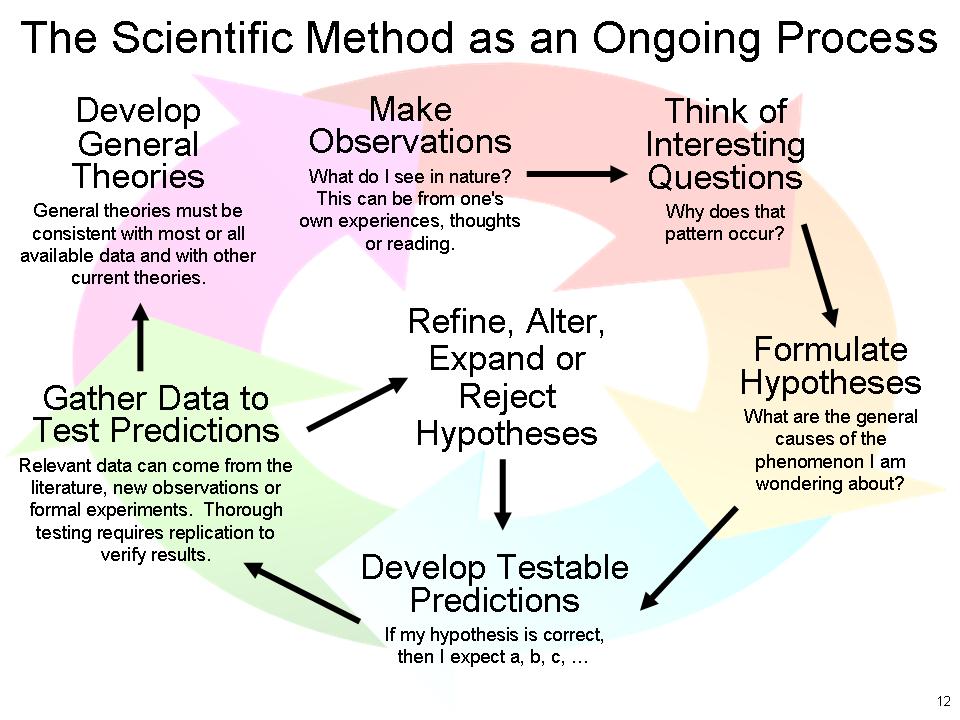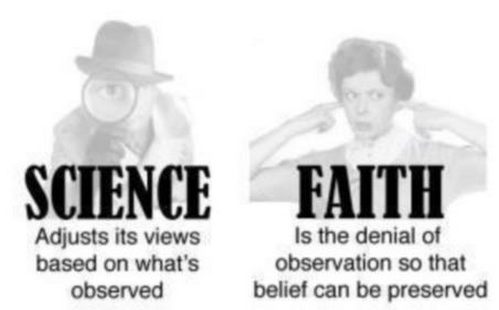Wondering about the reasons to be an atheist? Today, more people are turning away from religion for compelling, evidence-based reasons – starting with science. This article will be the first in a series of articles outlining the many reasons to be an atheist. The first reason to be discussed acknowledges that we have a better system of explaining the world than a religious one. The world is big, complex, and many times confusing. This is one of the reasons people turn to religion, because they feel that religion will provide answers to some of life’s biggest questions. However, there is a more accurate system of thought out there that provides these answers and unlike religion, it actually works. It’s called science.
Civilizations have invented thousands of religions over the centuries in an attempt to explain the world around them. After centuries of debate the results of religion are inconclusive on most topics and it’s been a spectacular failure on the rest.
As for one popular example, in the early 17th century the Catholic Church forbid Galileo Galilei from teaching the Copernican view of the Solar System that placed the Sun at the center of the system with the Earth and the other planets orbiting around it. According to the church at the time this view was in conflict with the teachings of the Bible. Clearly, the Bible got this basic fact wrong. On the other hand, there is overwhelming evidence that science works very well as a system of thought for explaining the world around us. By adapting a scientific worldview, we have no reason to be religious.
Science works because of its method and its commitment to the principles of scientific objectivity. Religion relies on blind faith to reveled prophecy. The two systems of thought for attempting to understand the world couldn’t be more polar opposites. Let’s take a look at why science works by looking at the five steps of the scientific method and the five principles of scientific objectivity.
The Scientific Method – Supporting Reasons to Be an Atheist
The scientific method consists of five steps.
- Making an observation – this involves observing some phenomena that requires an explanation of the phenomena
- Asking a question – the purpose here is to identify a specific problem and to narrow the focus of the inquiry
- Formulating a hypothesis – the hypothesis is an educated guess that can be tested
- Testing the prediction in an experiment – this is the investigation to see if the real world behaves as the hypothesis predicts
- Analyzing the result – here is where the conclusion is drawn on whether the evidence supports or rejects the hypothesis

(Credit: Wikimedia Commons)
Why Scientific Objectivity is a Key Reason to Be an Atheist
The scientific method works because it is objective. While it is true that scientists are people, and people’s perceptions of the world are subjective, that doesn’t mean that science hasn’t figured a way around that problem to become objective in practice. Scientific objectivity also consists of five principles.
- Observability – for something to be scientifically objective it must be observable. This includes things that our senses cannot observe directly but we can observe the effects through equipment such as infrared radiation.
- Universality – for something to be scientifically objective it must consider and account for all relevant data.
- Self-consistency – all of the observable data must fit into a self-consistent pattern to produces accurate results.
- Reproducibility – the data must be reproducible by other people.
- Debatability – the results must be debatable. The is the error-correcting process in science since individual people make strong emotional attachments to their idea’s or sometimes make mistakes.
The Difference Between Science and Religion in Explaining how the World Works
The scientific method along with its adherence to scientific objectivity provides the strongest tools we have to answering questions about the world around us. The universe works how it works and its up to us to discover how it works. That’s what science does, it discovers how the world works through observation and experimentation. Inventing superstitious religious stories and institutionalizing them over the generations doesn’t prove they must be correct, especially when observation and experimentation say otherwise.
There is an enormous wealth of observable evidence that fits into a self-consistent pattern that we call the theory of evolution by natural selection and which explains how humans, and all other species, evolved on this planet. There is absolutely no observable evidence for the creation myth of Adam and Eve in the book of Genesis from the Bible.
As the body of scientific knowledge has grown over time it has replaced religious explanations with scientific explanations – offering clear reasons to be an atheist. Religion still thinks it can provide answers to questions that science can’t yet answer, but that doesn’t mean that science won’t ever answer them. The remarkable progress of scientific knowledge over the past few centuries is one of the strongest reasons to abandon your religion and become an atheist.
These are just the first of many reasons to be an atheist we’ll explore in this series. Stay tuned for more.
Further Reading: Science as a Candle in the Dark by Carl Sagan; The Magic of Reality by Richard Dawkins; The God Delusion by Richard Dawkins; A Devil’s Chaplain by Richard Dawkins; Letter to a Christian Nation by Sam Harris; God and the Folly of Faith: The Incompatibility of Science and Religion by Victor Stenger

The scientific process of debating online atheists: listen to someone describe observable trends amongst atheists and then demand evidence . If there’s no evidence, the claim is dismissed. My atheist opponents typically argue against the observable while theists argue for the unobservable and it is in this way we are mirroring their ignorance.
A savvy person makes an observation, does a literature review AND when there’s nothing, decides that’s their thesis. Or a savvy person can write a needs assessment calling for more research to be done which is exactly what needs to continue on the toxic atheist community. Ra Men.
The Scientific process: works great when youre arguing against theists but when it comes to making descriptive generalizations about atheists, I get told I can’t generalize. Excuse me, but , ya’all don’t tell an epidemiologist she can’t generalize. Yet that is what I get told by overwhelming trends of debating atheists. Some PCness and a convenient logic card do not over rule an arena of science. This information is not well-received in the online atheist debating community on FB, Reddit & Twitter and the trends are overwhelmingly consistent over that past 4 years.
After 4 years of suggesting a scientific process to substantiate atheist-type rhetoric , it is my conclusion an overwhelming trend of atheists like science when they can troll the theists better but do *not* like it when it applies to themselves. I really need to write this up and have been working on an outline.
Never be blinded by the philosophies of men. That’s all I can say
It’s interesting to see there are so many different views on this. I tend to go with facts myself but then respect the decisions of others if they have differing opinions.
That is something to consider. These loads of information are very interesting. Science is a great tool that can answer the earth’s greatest questions. Thank you for the post.
I have live situations where science could not explain the reasons why certain things happen. I understand your arguments and respect them.